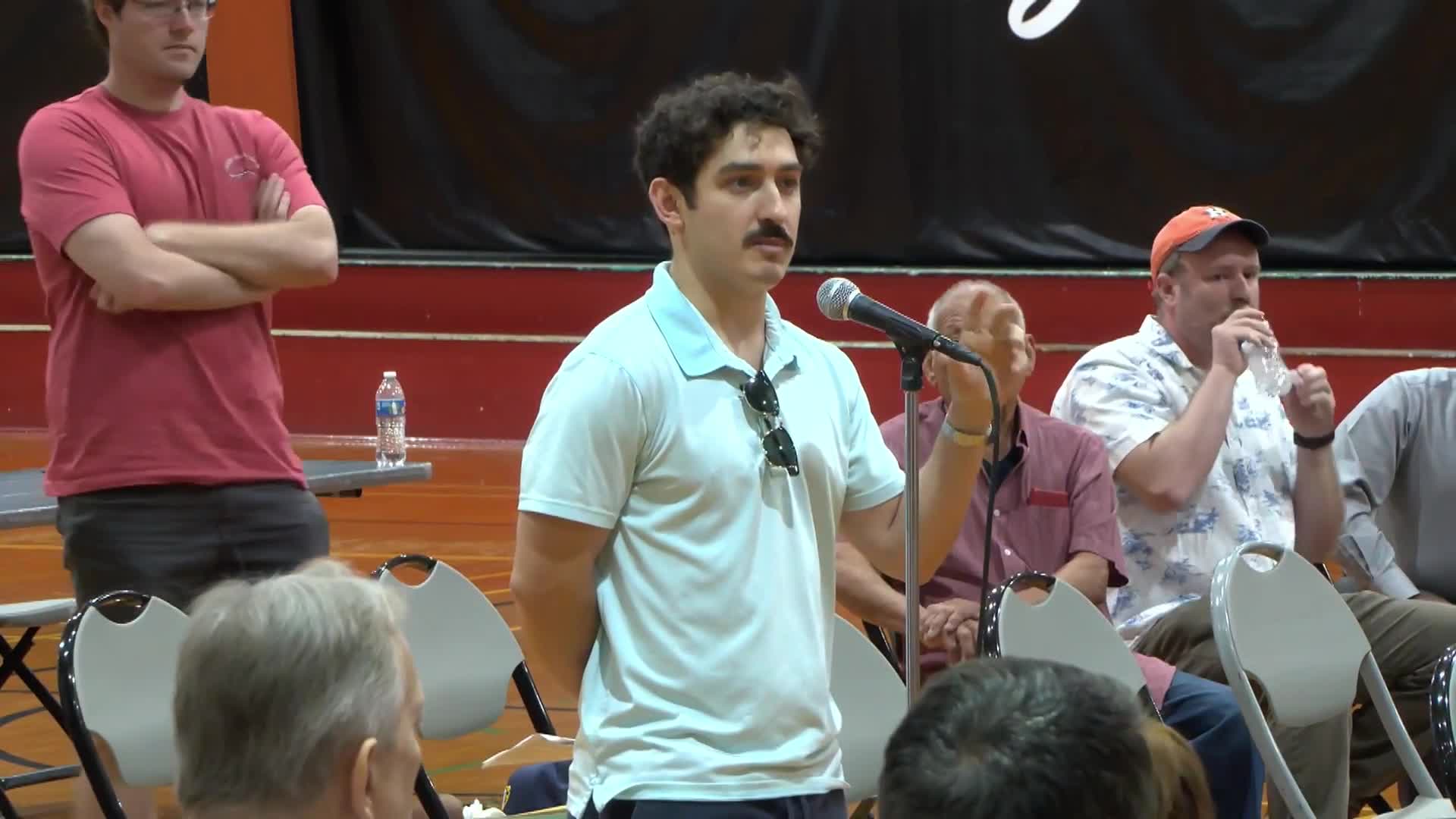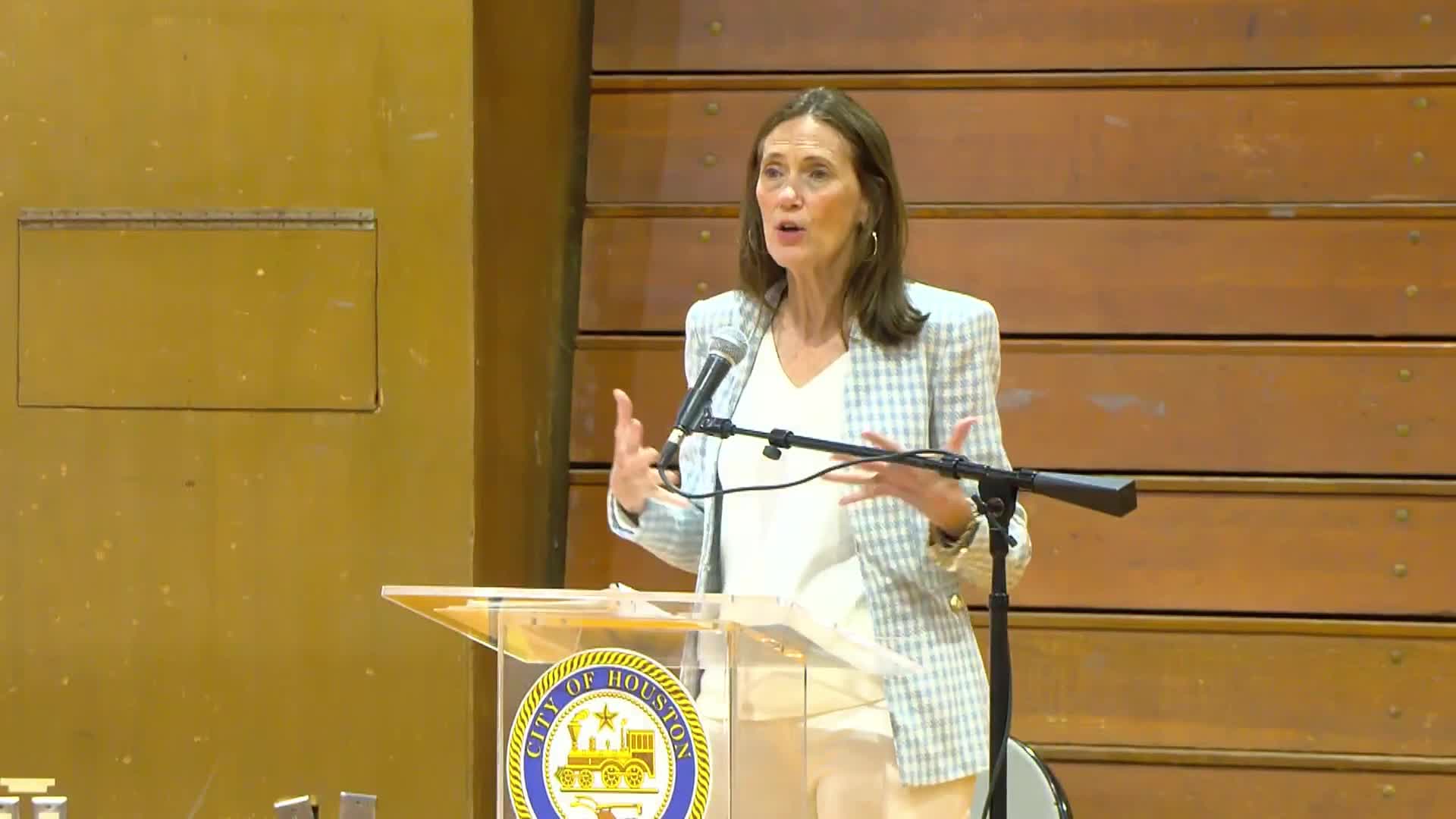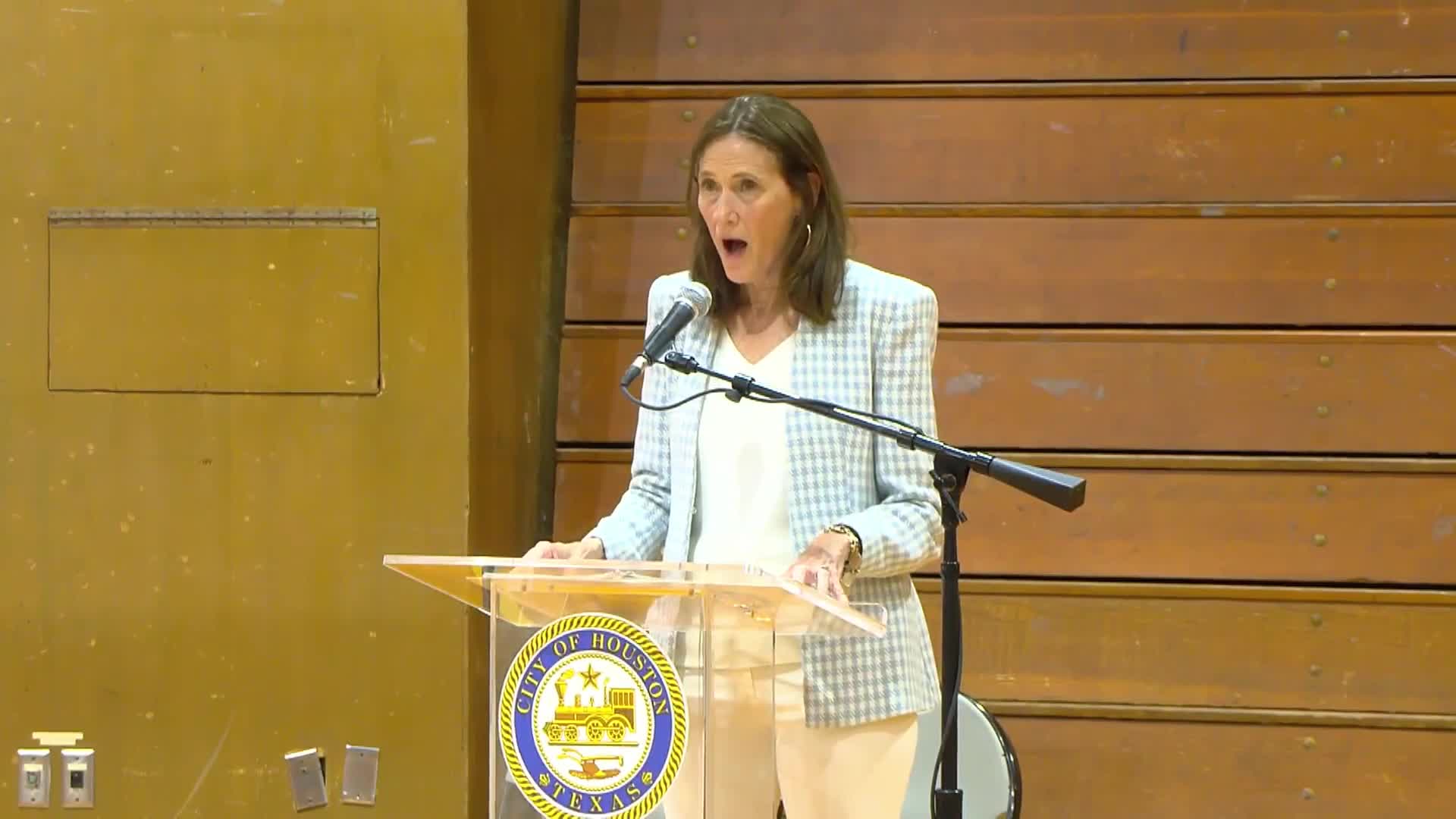Article not found
This article is no longer available. But don't worry—we've gathered other articles that discuss the same topic.

Residents say Metro funds should prioritize transit and trails; council and staff point to safety and capital limits

Residents press Houston leaders on crime, police raises and data sharing; council points to upcoming HPD budget workshop

Houston officials point to procurement consolidation, voluntary retirements and departmental moves to narrow FY26 gap

